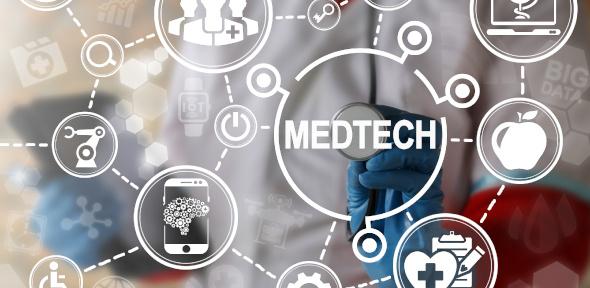Institute of Continuing Education (ICE)

Submitted by Josh Hatley on Wed, 08/05/2019 - 16:59
The effective and ethical use of patient data is of critical importance to improving healthcare delivery, service design and medical research. So what can you discover by connecting one substantial set of data to another? And then another and another? That’s what students of the new MSt in Healthcare Data: Informatics, Innovation and Commercialization will get to find out later this year.
There’s a vast amount of ‘unused’ healthcare data. With the development of electronic health records, hospitals and primary care organisations are accumulating large repositories of patient-level data. What if these pieces of data could be anonymised, aggregated together and investigated in new ways, again and again? How might society benefit?
In an increasingly data-driven economy, the government recognises the potential value: its Life Sciences Strategy encourages collaboration between academics, healthcare providers and businesses to help position the UK as a world leader in the transformation of patient-level data.
There’s been some positive progress in response to the government’s challenge, with concerted efforts to make databases more accessible. Now, attention is also turning to transforming the data they contain into something useful and valuable. But there’s a resource issue – there simply isn’t enough expertise to make the most of what’s becoming available. That’s where the new Healthcare Data course comes in.
“We’re incredibly fortunate in Cambridge,” says Course Director and Consultant Neurointensivist, Dr Ronan O’Leary. “Cambridge University Hospitals (CUH) holds one of the largest electronic patient record databases outside of the USA. It contains 2.1 million records, totalling 14.2 million separate interactions."
“Alongside CUH and the University of Cambridge, we’re part of a biomedical campus that brings us together with the likes of AstraZeneca and Cancer Research UK, so we’ve got access to enormously rich data sets and a wide range of expertise and perspectives. I don’t know if there’s anywhere else in the world where there’s such a confluence of opportunity and desire to take existing data in new directions, and that’s what our Healthcare Data programme will do."
“We’ll take people who don’t necessarily have a specialism in this field – be they healthcare professionals, computational scientists or something else – train them how to independently extract, analyse, interpret and visualise data and then see where their new skills take them. The exciting part is that we don’t yet know where it will lead.”
Teaching students how to visualise data demonstrates how this course, a collaboration between the partners of the Cambridge Healthcare Data Hub, is interested in not only mining information, but also re-purposing it – the ability to present extracted data in an engaging and intelligible way is vital to graduates’ success.
“We’ll also train people to think commercially and understand the opportunities, as well as the legal, governance and ethical considerations, that having access to such an extensive well of data generates,” adds Dr O’Leary. “We hope this course becomes a test bed for commercially valuable ideas.”
As well as enhancing their skills and establishing a network of professionals able to maximise the use of data, through entrepreneurship and commercialisation, graduates have the potential to achieve significant economic benefits for the Cambridge area, the UK and beyond.
Innovative research could help improve diagnoses, clinical decision making, patient communication, the development of new medicines and lots more besides. Wherever their research takes them, there’s a real sense that students joining this course are getting a chance to shape the shared, data-led future of the healthcare economy.
---
This article was originally published as part of the 2019 Lent term edition of Inside ICE.